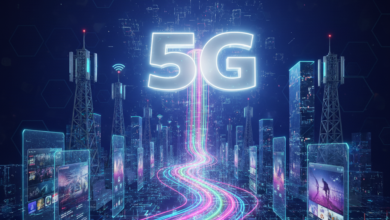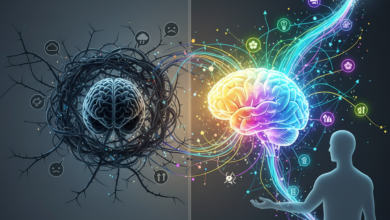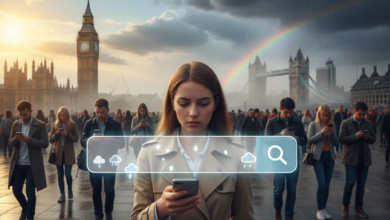The Evolution of the English Language: A Historical Journey

Introduction to the English Language
The English language, known for its rich history and dynamic evolution, serves as a primary means of communication for millions around the globe. As a member of the Germanic branch of the Indo-European language family, English has evolved through various phases, incorporating elements from a multitude of languages due to historical events such as conquests, trade, and cultural exchanges. Today, it stands as one of the most widely spoken languages, with an estimated 1.5 billion speakers worldwide, making it a global lingua franca.
The significance of the English language extends far beyond communication. Its role as a medium of instruction in higher education, a key language of international business, and a staple of the digital world underscores its importance in various spheres of life. English is used in diplomacy, science, technology, and popular culture, further cementing its status as a universal language that bridges cultural and linguistic gaps.
The evolution of the English language is a remarkable journey marked by continual transformation. From Old English, influenced heavily by Germanic tribes, to Middle English, which saw the impact of Norman French following the Norman Conquest of 1066, the language underwent profound changes. The transition to Modern English, beginning around the late 15th century, introduced further shifts in grammar, vocabulary, and pronunciation, some of which are still prevalent today.
As we delve deeper into the historical development of English, we will explore how various historical contexts shaped its form and usage. Additionally, we will examine dialectical variations across regions and the impact of technology and globalization on the modern usage of English. Understanding the progression of this language can provide valuable insights into its current position and future trajectory in an ever-changing world.
Origins of English: Anglo-Saxon and Old English
The history of the English language can be traced back to the Anglo-Saxon period, which began around the 5th century. During this time, various Germanic tribes, including the Angles, Saxons, and Jutes, invaded and settled in what is now England. The influence of these tribes played a fundamental role in shaping the early form of the language known as Old English. This linguistic evolution was profoundly affected by the merging of various dialects from the regions these tribes hailed from in modern-day Germany and Denmark.
Old English, characterized by its complex grammar and vocabulary, exhibited a rich tapestry of words derived from Germanic roots. The language employed a system of strong and weak declensions, and its syntax reflected a more inflected nature than is found in contemporary English. This inflection led to a high degree of syntactical flexibility, allowing for various sentence structures that could convey similar meanings. Vocabulary from this period was heavily influenced by the everyday lives and cultures of the Anglo-Saxon people, including terms related to agriculture, warfare, and community life.
One of the most notable literary works from the Old English period is ‘Beowulf,’ an epic poem that provides insights into the values, beliefs, and social structures of the time. The poem not only serves as a great piece of literature but also exemplifies the linguistic characteristics of Old English. Its themes of heroism, loyalty, and the struggle against evil resonate through its verses, highlighting the cultural heritage of the Anglo-Saxon era. As the Old English language continued to evolve, it set the stage for transitioning into Middle English, marking an important milestone in the development of the English language.
The Norman Conquest and Middle English
The Norman Conquest of 1066 marked a pivotal moment in the history of the English language. Following the defeat of King Harold II at the Battle of Hastings, William the Conqueror and his Norman followers brought with them a new linguistic influence. The Normans spoke a dialect of Old French, which began to intermingle with the Old English spoken by the Anglo-Saxons. This fusion resulted in a transitional linguistic period known as Middle English, which lasted from approximately the 12th to the 15th centuries.
The impact of the Norman Conquest was profound; extensive borrowing of vocabulary occurred as the ruling class adopted Norman French while the general populace retained much of their English linguistic heritage. As a result, many words relating to law, governance, art, and cuisine entered the English lexicon. Terms like “court,” “judge,” “jury,” and “government” reflect this shift, signifying a societal transformation influenced by Norman rule.
During this time, the grammar and pronunciation of Old English also underwent significant changes, moving towards a system that resembled modern English more closely. Pronouns and prepositions evolved, and the inflectional endings characteristic of Old English began to diminish. This simplification of grammar facilitated clearer communication and set the stage for future developments in the language.
One of the most notable authors of Middle English is Geoffrey Chaucer, whose works, including “The Canterbury Tales,” showcased the linguistic evolution that was occurring. Chaucer’s use of English, enriched by French vocabulary and a more diverse structure, encouraged the acceptance and literary prestige of English in a time dominated by French. His contributions played a crucial role in the legitimization of English as a language of literary expression and set the stage for the Renaissance’s flourishing of English literature.
The Great Vowel Shift and Early Modern English
The Great Vowel Shift represents a pivotal phonetic transformation in the English language that occurred roughly between the 15th and 18th centuries. This monumental change primarily involved a systematic alteration in the pronunciation of long vowels, leading to distinctly different ways of speaking. For instance, what was once pronounced as “meet” [meːt] transitioned to [miːt], while “bite” evolved from [biːt] to [baɪt]. As a result, many of the distinctions in vowel sounds that were present during Middle English diminished, contributing to a notable divergence between written and spoken forms of the language. This shifting of vowels not only changed individual words but also had a profound impact on the general phonetic landscape of Early Modern English.
During this era, the English language was transitioning from Middle English, which was characterized by a more consistent pronunciation, to Early Modern English, a stage that saw a rising influence of standardization in spelling and grammar. This period is marked by an increase in written documentation, fostered by the invention of the printing press. The spread of literacy allowed for a more consistent application of spelling, even as pronunciation continued to evolve. The works of literary figures such as William Shakespeare serve as a testament to this linguistic shift. His writings reveal a blend of the evolving vocabulary and changing pronunciations of that time, establishing a bridge between previous linguistic traditions and contemporary usage.
The Great Vowel Shift and the transition to Early Modern English were instrumental in shaping the modern form of the English language. As traditional pronunciations transformed and new lexical entries emerged, the foundation for expressing complex ideas underwent significant development. This era laid the groundwork for the rich literary and linguistic tapestry that characterizes modern English today.
Standardization of English and the Printing Press
The introduction of the printing press in the 15th century marked a pivotal point in the evolution of the English language. Prior to this innovation, English existed in a myriad of dialects and forms, largely dependent upon regional variations and the oral traditions that governed communication. The printing press, attributed to Johannes Gutenberg, facilitated the mass production of text, allowing for greater dissemination of written works and thereby fostering a more consistent language structure.
As printed material became widely accessible, the necessity for standardization grew. One of the first significant steps towards this standardization was the establishment of grammar rules that governed the use of English. Scholars and linguists began to formally analyze the language, documenting its syntax and semantics. This effort was crucial in unifying the various dialects that existed, as it provided a reference point for correct usage. The uniformity facilitated by printing also contributed to the reduction of spelling variations, aligning words under standardized forms.
Additionally, the publication of dictionaries played a critical role in the standardization process. Samuel Johnson’s dictionary, published in 1755, is one of the most notable examples of this trend. This comprehensive resource not only defined words but also provided guidance on their pronunciation and usage, further aiding in the standardization of English. Johnson’s work was essential in establishing a common linguistic framework that would endure through succeeding generations. Overall, the advent of the printing press catalyzed a transformation in the English language, steering it towards a path of uniformity and accessibility that set the stage for its global prominence.
Colonial Expansion and Global Spread of English
The expansion of the British Empire from the late 16th century to the mid-20th century significantly contributed to the global spread of the English language. As the British established colonies in various parts of the world, English emerged as a dominant medium of communication, often displacing local languages and dialects. This proliferation resulted in the establishment of English as a lingua franca in many regions, particularly in India, Africa, and the Americas.
In India, for example, English was introduced during British rule, initially used for administrative purposes and education. Over time, it became an essential part of the social fabric, influencing local languages and cultures. Today, English is one of the official languages of India, and it plays a crucial role in the country’s education system and business environment. The incorporation of English terminology into various Indian languages showcases how the language has been adapted and localized to fit cultural contexts.
Similarly, in Africa, the colonial period led to the establishment of English as an official language in many countries. The legacy of colonialism left an indelible mark on the continent, where English is often used in government, media, and limited educational structures. Adaptations of English in African nations have given rise to unique variations, such as Nigerian English and Kenyan English, reflecting the rich tapestry of local culture and linguistic heritage.
In the Americas, the English language spread rapidly, especially in regions that experienced significant British settlement. The United States and Canada became prominent examples of English-speaking nations where the language evolved, absorbing influences from Native American languages and immigrants. The result is a rich dialectal diversity that characterizes North American English today. Thus, the colonial expansion of Britain laid the groundwork for English to become a global language, deeply intertwined with local cultures and identities.
Modern English: Influences and Changes
Modern English, as we know it today, has been significantly shaped by various influences and ongoing changes throughout its development. One of the most prominent characteristics of Modern English is its extensive incorporation of loanwords from an array of languages. This linguistic borrowing is evident in everyday vocabulary, where terms from Latin, French, Spanish, and numerous other languages are seamlessly integrated. For instance, words such as ‘ballet’ from French or ‘pizza’ from Italian reflect cultural exchanges that have enriched the English lexicon, making it increasingly diverse and adaptable.
Technological advancements have also played a crucial role in the evolution of Modern English. The advent of the internet and social media has revolutionized communication, resulting in the creation of new terminologies and abbreviations. Phrases such as ‘LOL’ (laugh out loud) and ‘BRB’ (be right back) epitomize this trend of linguistic innovation. Additionally, the rapid spread of information through digital platforms has facilitated the global exchange of ideas, leading to the incorporation of non-English terms and expressions into everyday language. This blending of languages can be seen as a sign of Modern English’s ever-evolving nature.
The role of media, both traditional and contemporary, cannot be overlooked in its influence on Modern English. Television shows, films, literature, and online content have all contributed to the popularization of specific phrases, slangs, and even accents. The way language is presented in various forms of media affects public perception and usage, leading to shifts in grammar, pronunciation, and style. Furthermore, as global connectivity increases, the interaction between different English dialects rises, fostering a unique blend that exemplifies Modern English as a dynamic language.
The Role of English in the 21st Century
In the 21st century, the English language has firmly established itself as a global lingua franca, facilitating communication across diverse cultural and linguistic backgrounds. Its prominence is particularly evident in international business, education, and technology, where fluency in English has become a crucial asset. Many multinational corporations consider English proficiency a vital requirement for employment, reflecting the language’s status in global commerce. This underscores the fact that English is not just a means of communication but also a tool for economic advancement and professional development.
In the realm of education, English serves as the primary medium of instruction in many countries, and its influence continues to expand. Numerous academic institutions worldwide offer programs primarily in English, attracting students from all corners of the globe. This trend has boosted the dissemination of knowledge and fostered cross-cultural academic collaborations, thereby reinforcing English’s position as the dominant language in higher learning environments.
Moreover, technological advancements have played a significant role in the global dissemination of English. The internet, social media, and digital communication platforms predominantly utilize English, which further consolidates its status as a global communication tool. The rise of English content on the web has created a vast repository of information accessible to anyone with internet connectivity, allowing non-native speakers to engage with and contribute to a global discourse.
However, the sociolinguistic aspects of English usage in the 21st century are complex. The language encompasses diverse dialects and varieties, reflecting the multitudes of cultures that have adopted it. These variations contribute to a greater understanding of English as a dynamic and evolving entity, rather than a static linguistic form. Consequently, while English serves as a common tongue, it also shapes and is shaped by the cultural contexts in which it is used.
Conclusion: The Future of the English Language
The English language has undergone significant transformations throughout its history, shaped by a plethora of influences ranging from invasions to globalization. Its journey reflects not only a rich tapestry of culture and identity but also the adaptability of human communication. As we look to the future, it is imperative to acknowledge that the evolution of the English language is far from over. In a world that is rapidly globalizing and digitizing, English is positioned at a critical juncture.
One of the most pertinent factors affecting the future of English is its increasing role as a global lingua franca. The language continues to spread across continents, facilitating international dialogue in business, science, and culture. This widespread use is leading to the emergence of diverse English dialects and variations, each influenced by local languages and customs. Such linguistic diversity can enrich English, introducing new vocabulary and expressions; however, it may also challenge the notion of a standardized language. The blend of local vernaculars into English, as seen in regions like Africa and South Asia, highlights the fluidity of language and raises questions about the preservation of traditional forms.
Moreover, technological advancements play a crucial role in shaping the future of English. The rise of social media, instant messaging, and other digital platforms has accelerated linguistic changes, introducing new words and altering traditional grammar rules. The proliferation of emojis and abbreviations exemplifies a shift in communication styles, making the language more informal yet more expressive. As English continues to adapt to the digital landscape, it is essential to consider both the benefits and the challenges of this transformation.
In conclusion, the future of the English language is poised for constant change, influenced by globalization, technology, and cultural dynamics. Its evolution will reflect the broader shifts in society, providing a unique lens through which to observe human interaction in an interconnected world.






















